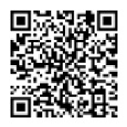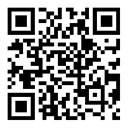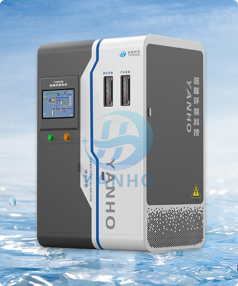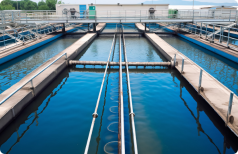Wind power generation

An electrical device that converts wind energy into mechanical work, which drives the rotor to rotate and ultimately outputs alternating current. Wind turbines generally consist of components such as wind turbines, generators (including devices), directional controllers (tail fins), towers, speed limiting safety mechanisms, and energy storage devices.
Equipment Process
The principle of wind power generation is to use wind power to drive the blades of a windmill to rotate, and then increase the speed of rotation through a booster engine to drive the generator to generate electricity. According to current windmill technology, a gentle wind speed of approximately three meters per second (the degree of gentle wind) can start generating electricity. Wind power generation is forming a trend around the world because it does not require the use of fuel, nor does it generate radiation or air pollution. Wind power can be classified into two categories: ① horizontal axis wind turbines, where the axis of rotation of the wind wheel is parallel to the wind direction; ② Vertical axis wind turbine, where the axis of rotation of the wind turbine is perpendicular to the ground or airflow direction.
Equipment Advantages
-

Good environmental benefits
Clean and environmentally friendly
-

Inexhaustible
Renewable, never depleted
-

Short cycle
Short infrastructure cycle
-

Flexible scale
Flexible installation scale
设备参数
Application Area
-

Power generation and supply
-

Energy storage
-

Power supply network adjustment
-

Radio communication
-

Urban lighting
CONTACT US

Official Account


Mobile Browsing






 Hotline:
Hotline: Address:No.76 Longfei Road, Chengyang District,Qingdao, Shandong Province, China
Address:No.76 Longfei Road, Chengyang District,Qingdao, Shandong Province, China E-mail:y15092162376@163.com
E-mail:y15092162376@163.com